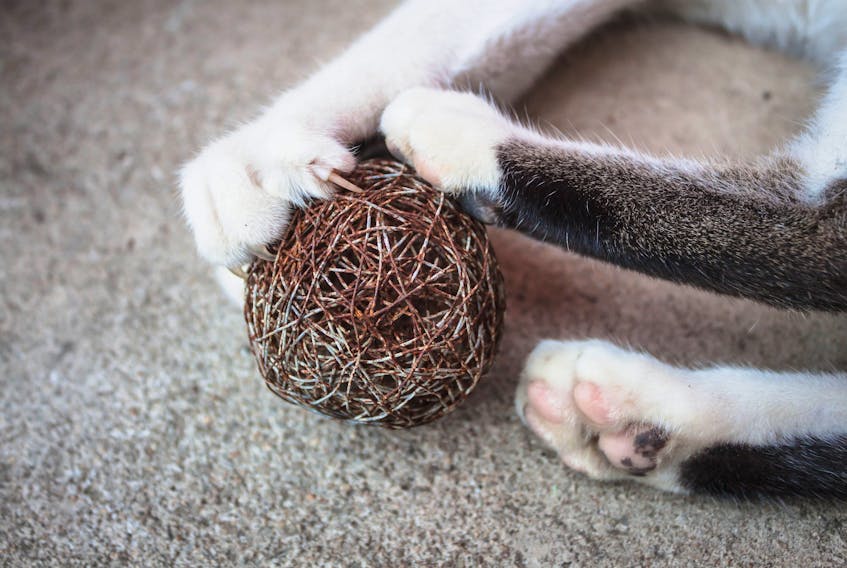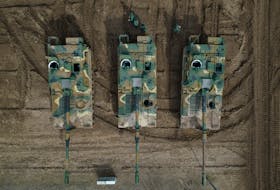So, you’re tired of your cat scratching up the furniture, not to mention your kids’ arms, and have decided to get your precious pet declawed.
It’s a common practice across Canada, but more and more veterinarians are refusing to perform the procedure, believing it causes unnecessary and avoidable pain and ought to be banned.
Mount Pearl’s Dr. Maggie Brown-Bury is one of them.
“In the majority of cases, it’s being done for owner convenience, not for the health of the animal,” she said, noting studies have shown that declawed cats can develop behavioural issues later in life.
“There’s an increasing awareness what the procedure actually is. There’s a long history of people remaining ignorant and not realizing that to declaw a cat, we are actually amputating the end of their toes, and that’s a pretty significant procedure.”
Last week, Nova Scotia became the first province to ban medically unnecessary cat declawing.
The ban — part of a worldwide movement against the practice — took effect March 15 after a three-month education period.
The Nova Scotia Veterinary Medical Association decided in December to amend its code of ethics to make the practice of elective and non-therapeutic declawing ethically unacceptable.
Last March, the Canadian Veterinary Medical Association strengthened its stand against declawing domestic cats, saying scratching is normal behaviour that cats use to mark territory, and claws help with balance, climbing and self-defence.
Veterinarian organizations in many other provinces are having active discussions on the issue.
However, there has been no move to ban the practice in this province.
While many clinics and animal centres in this province refuse to declaw cats, many veterinarians still perform the procedure, and a formal motion to change the bylaws here hasn’t been brought to the table in two of the province’s veterinary governing bodies — the Newfoundland and Labrador Veterinary Medical Association (NaLVMA) and the Newfoundland and Labrador College of Veterinarians.
Part of the NaLVMA’s mission statement is to contribute to the betterment of animal health and welfare, while the college, the veterinary regulatory body, has a mandate to manage the licensing and discipline of vets in the province, as well as being responsible for provincial bylaws and regulations regarding veterinarians.
Brown-Bury is president of the NaLVMA, but has opted not to speak on behalf of the association, since it hasn’t been addressed as a group.
“It’s a hot topic amongst veterinarians, but we’ve never discussed it as an association,” she said, pointing out that, as president, she works to address other members’ concerns.
“The ban in Nova Scotia was not a case of overnight success. A lot of time and effort went into achieving the ban. Personally, I am not in a position to lead the charge and take on that burden. Instead, I focus on educating the public when I can, and having frank discussions with colleagues about the procedure, and being supportive of colleagues who no longer want to provide the procedure.”
Brown-Bury explained that changes in provincial bylaws are the college’s responsibility.
The college turned down The Telegram’s request for an interview on the issue.
However, in an emailed response, college registrar Heather Hillier explained that in accordance with the Veterinary Medical Act of Newfoundland and Labrador, a bylaw would have to be proposed by a member of the college at least 30 days prior to a major membership meeting, which are held semi-annually. The next meeting is scheduled for May 26, but the agenda has not yet been drafted.
“Currently,” Hillier said, “our members have the professional discretion on when or if to perform a declaw procedure.”
Twitter: TelyRosie









